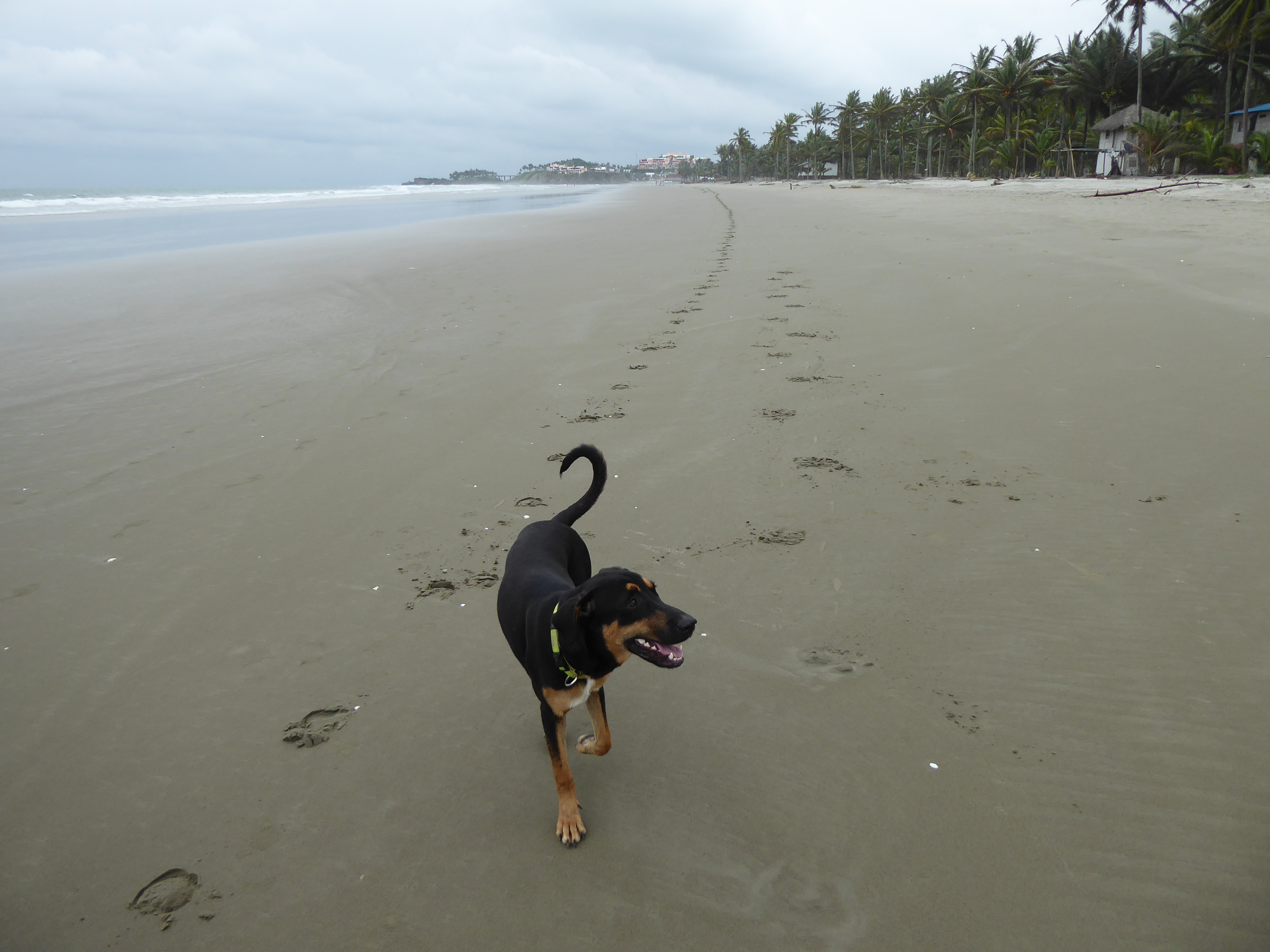 Mompiche lies four hours north by bus of Canoa- people speak in time because distances might be short, but travel time rarely is. It is deemed by some to be the quintessential fishing village of Ecuador- “a must see”.
Mompiche lies four hours north by bus of Canoa- people speak in time because distances might be short, but travel time rarely is. It is deemed by some to be the quintessential fishing village of Ecuador- “a must see”.
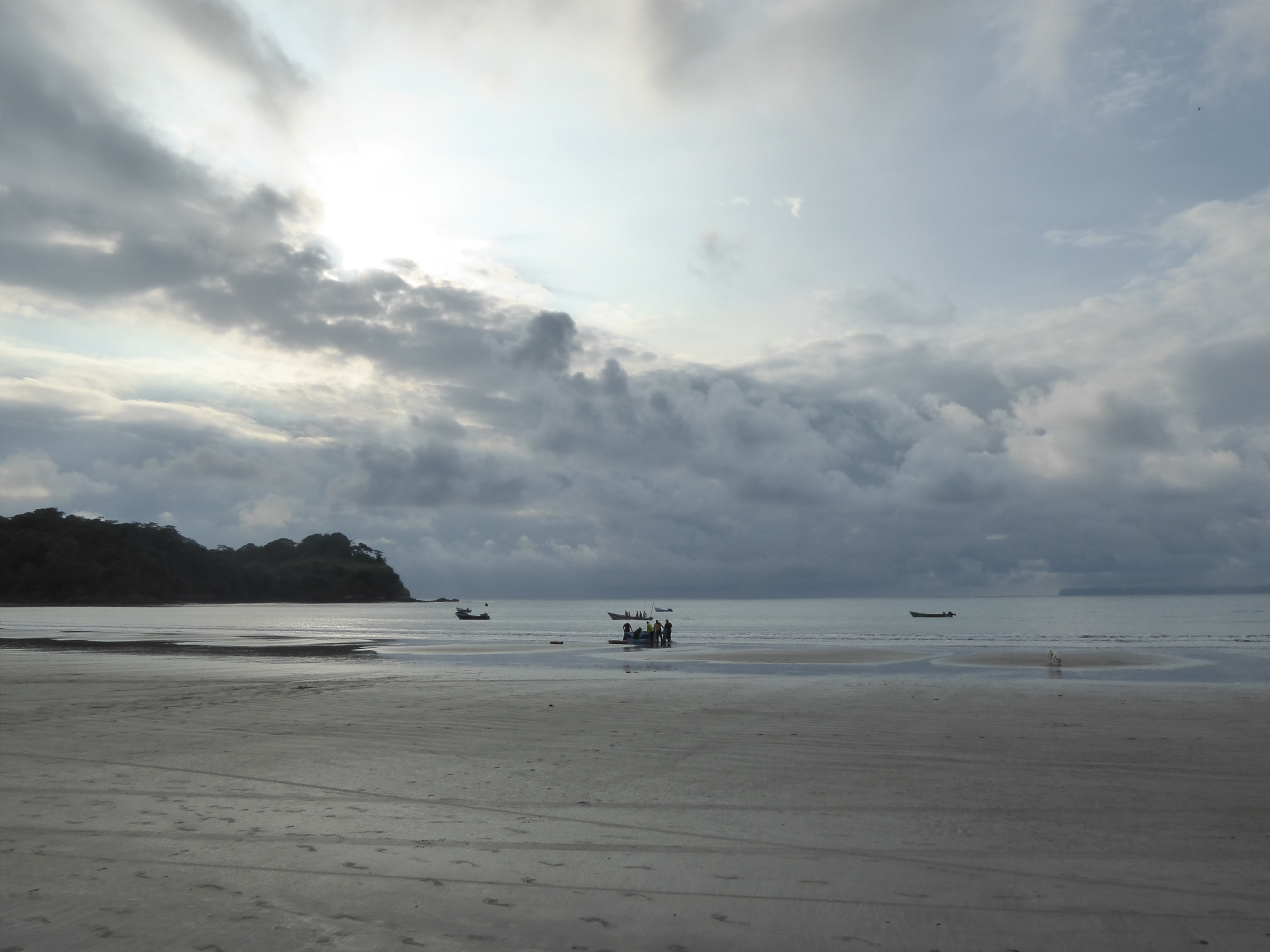
I returned to Perdenales to change buses for Mompiche. Perdenales, a small city, was the epicenter of the earthquake in 2016, but never having been there, it was difficult to know if the vacant lots had been something else. The town was thriving. It was Sunday-market day-and the streets were crowded with sellers and shoppers.
A few hours later the bus stopped at the turn off from the highway to Mompiche. I needed to take a taxi 5km to the town. Two taxis were there: the drivers were reclining beneath a simple concrete shelter shielding themselves from the harsh sun.
Mompiche is indeed a charming, tiny, tourist/fishing town. The beach is wide and long. Boats come and go from sea to shore. The restaurants offer local seafood, pizza, and other gringo fare. Men engage in futball and volleyball on the beach.
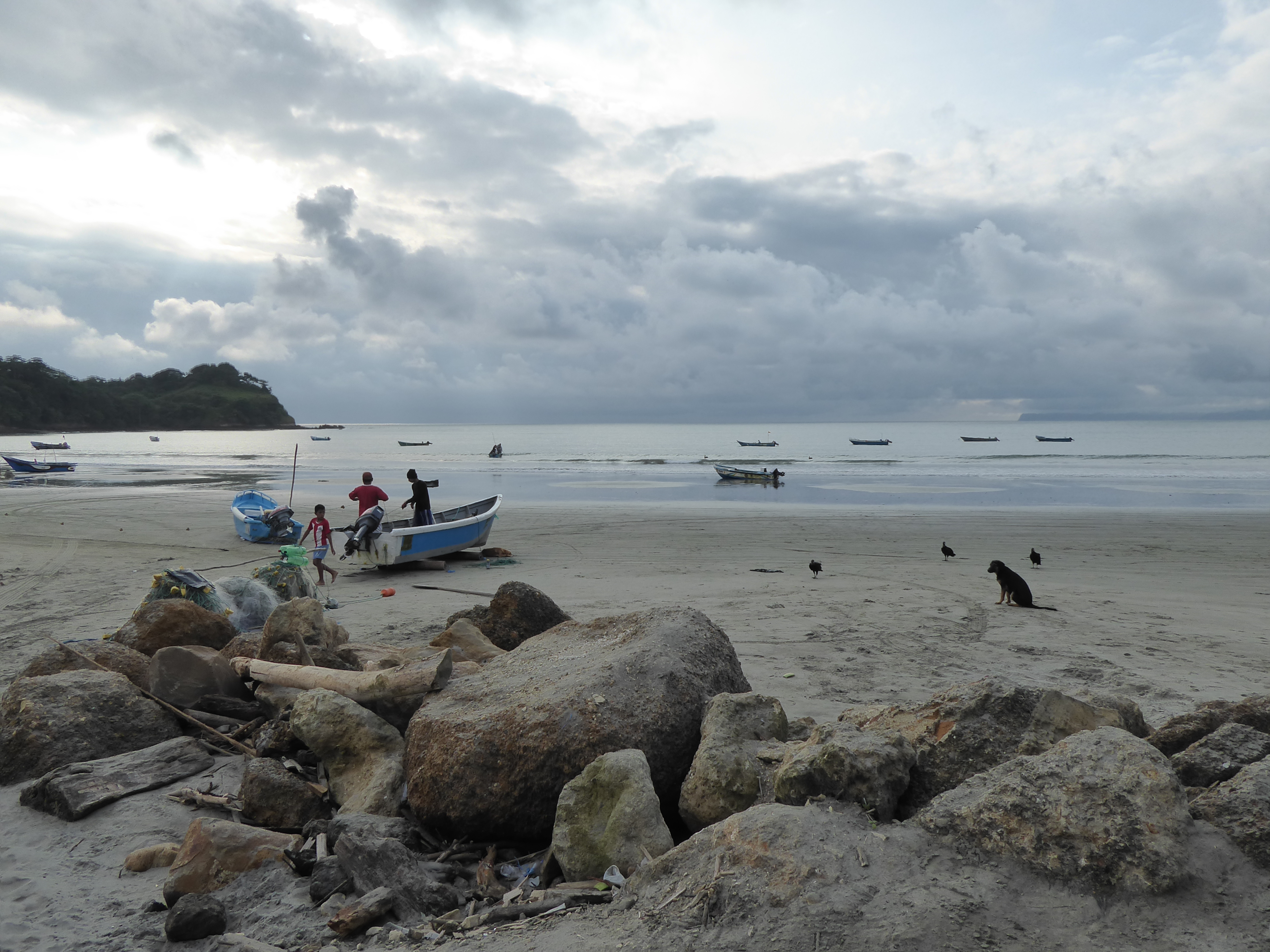
But beyond the facade of this engaging coastal town is poverty: dwellings are mostly shanties. Roads were rutted and muddy with deep puddles. It took concentration to navigate through them-locals walked in high rubber boots or barefoot. Yet this poverty is not one of homelessness nor hunger. Food is abundant and life, although simple, seems full with family and friendship. Older children wear crisp school uniforms and younger children play freely and gleefully.
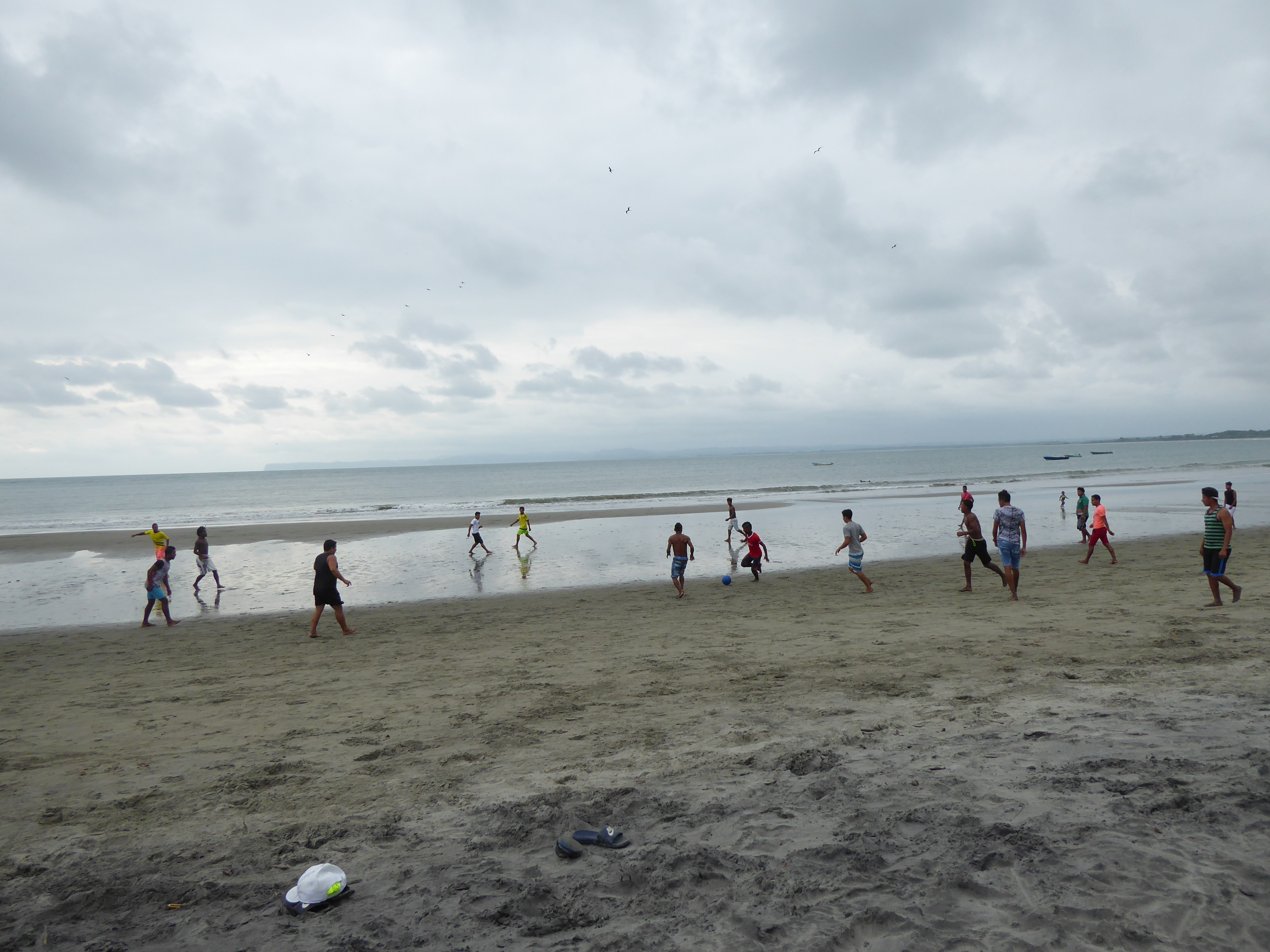
I found a small bungalow on the beach. The owner’s dog Boa and I hit it off immediately and we took great walks together.
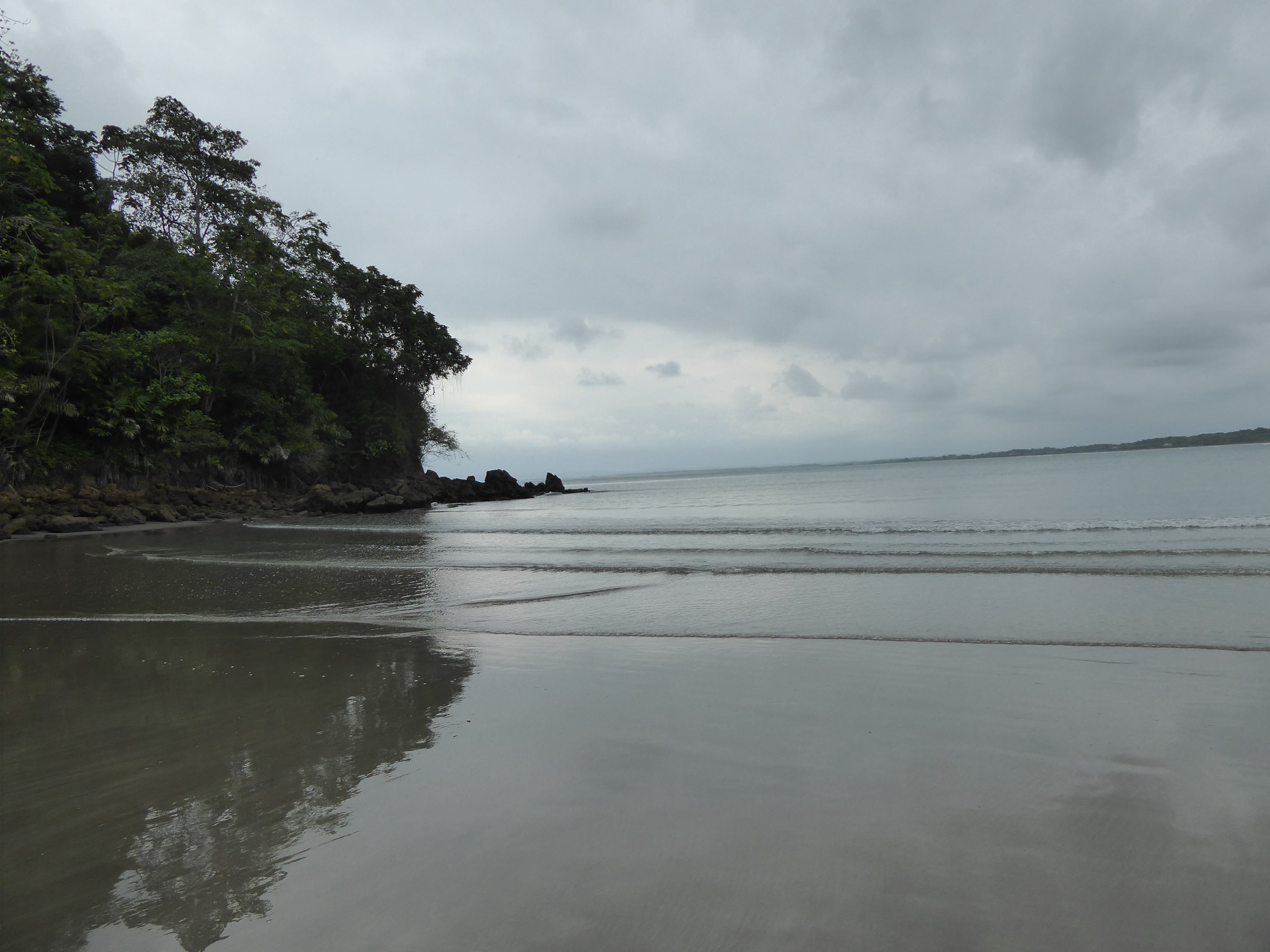 One day we visited Isla Portete, a tiny island of mangroves and a palm tree lined beach. It required a short boat ride to get there. Before leaving I bought a fresh coconut to quench my thirst and got a bowl of water for Boa. While enjoying the juice, sitting beneath palm fronds on a wooden bench, and watching Boa and the resident cat play tag, the seller and I began chatting. We exchanged the usual introductions: where we were from, work-he told me about the scar on one hand from a badly poised knife, but not the burn scar on the other-and soon after I was giving him an English lesson. We developed a list of sentences he could use in his business encounters.
One day we visited Isla Portete, a tiny island of mangroves and a palm tree lined beach. It required a short boat ride to get there. Before leaving I bought a fresh coconut to quench my thirst and got a bowl of water for Boa. While enjoying the juice, sitting beneath palm fronds on a wooden bench, and watching Boa and the resident cat play tag, the seller and I began chatting. We exchanged the usual introductions: where we were from, work-he told me about the scar on one hand from a badly poised knife, but not the burn scar on the other-and soon after I was giving him an English lesson. We developed a list of sentences he could use in his business encounters.
He thanked me by personally taking Boa and I back to the mainland in his canoe. He, like other people in the provinces, did not get much more than a basic education.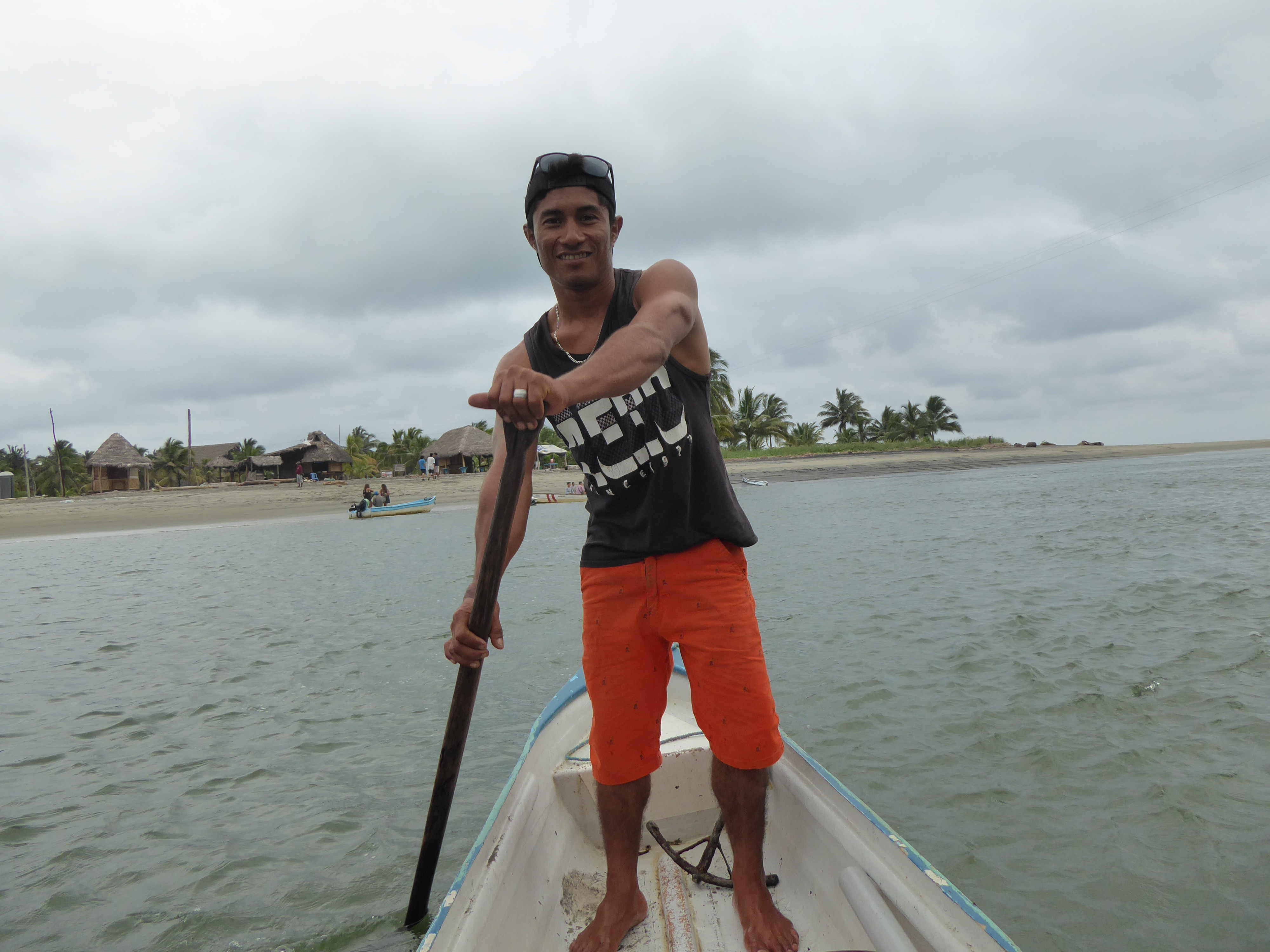
Those working with tourists are pleased to learn some English-the lingua franca of the world. The following evening “Gringa” was used to get my attention from a woman selling fruit from her truck. I laughed and told her my name. Our conversation led to my sitting down with her sixteen year old daughter to help her prepare for an English test the following day.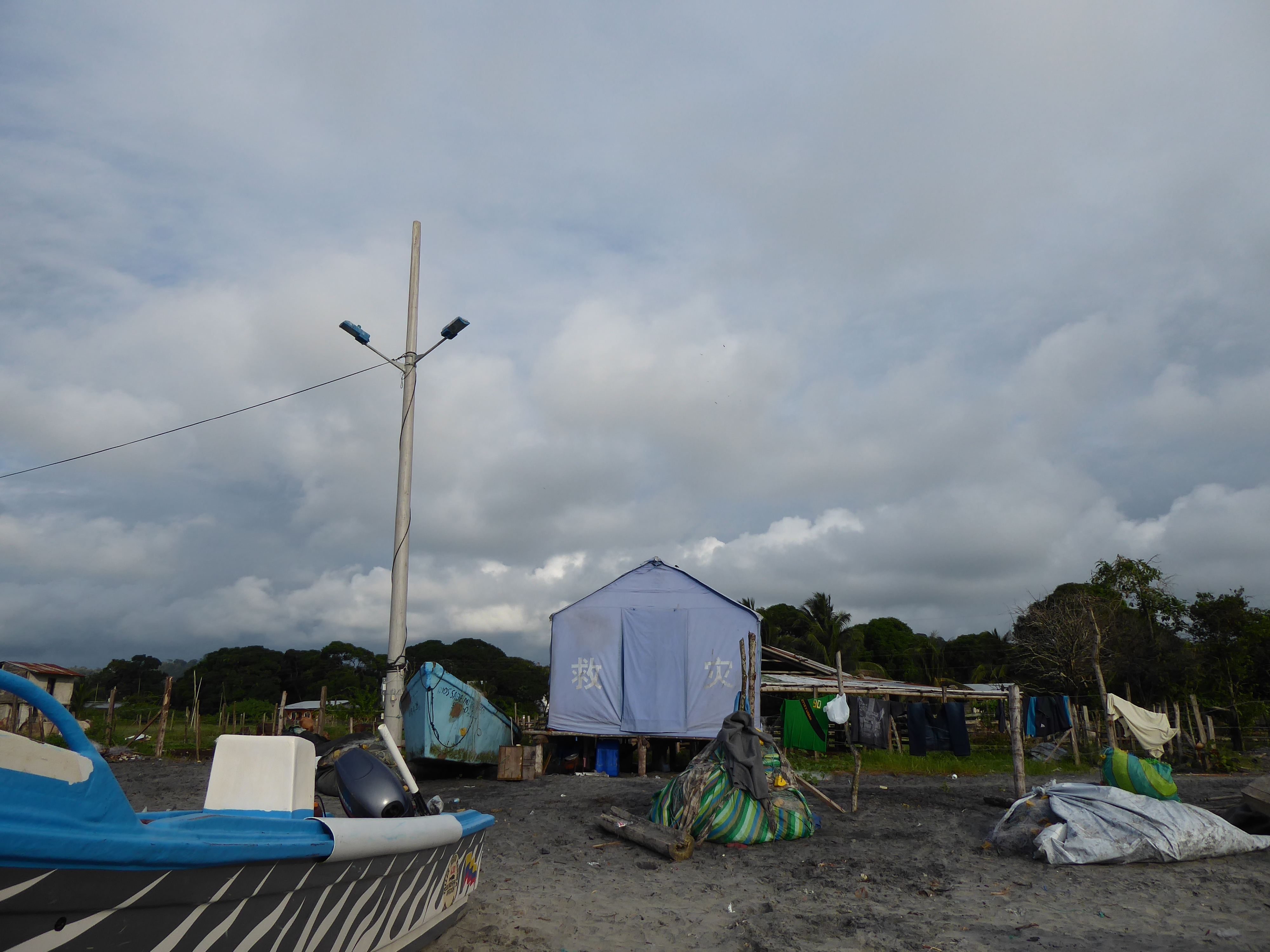
I enjoyed my time and my adventures with Boa, but after three nights in Mompiche I returned to Canoa to finish up my ten days on the coast.